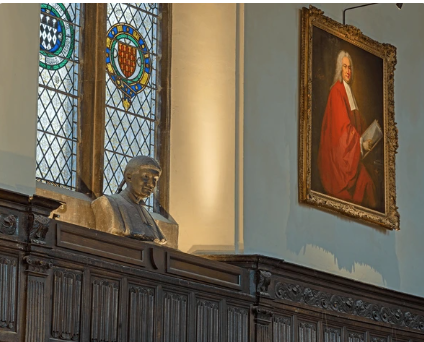Introduction: The Scandal That Rocked Britain
The Profumo Affair of 1963 was one of the most sensational political scandals in British history. It involved John Profumo, the Secretary of State for War in Prime Minister Harold Macmillan’s Conservative government, who was caught lying to Parliament about his affair with Christine Keeler, a 19-year-old model. The scandal exposed a web of deception, espionage, and moral hypocrisy that ultimately led to the resignation of Profumo, damaged the government’s credibility, and contributed to the downfall of Macmillan’s administration.
The affair captivated the public’s attention and became a symbol of the changing social mores of the 1960s. It highlighted the growing tension between the traditional British establishment and the emerging counterculture, which demanded greater transparency and accountability from those in power. The Profumo Affair was more than just a personal scandal; it was a turning point that signaled the end of an era and the beginning of a new, more open society.
Read Also : Queen Victoria Becomes Monarch (1837): The Dawn of a New Era
The Key Figures: The Players in the Profumo Affair
The Profumo Affair involved a colorful cast of characters, each playing a crucial role in the unfolding drama.
John Profumo: The Minister at the Center of the Storm
John Profumo was a rising star in the Conservative Party when the scandal broke. Born in 1915, he had served with distinction during World War II and had quickly climbed the ranks of British politics. By 1960, he had been appointed Secretary of State for War, a position that placed him at the heart of the British government’s defense strategy during the height of the Cold War.
Profumo’s career seemed destined for greatness until his involvement with Christine Keeler became public. The affair began in 1961 when Profumo, then 46, met Keeler at a party hosted by Stephen Ward, a well-connected osteopath with ties to both the British elite and the underworld. The relationship was brief, but it had far-reaching consequences, particularly when it was revealed that Keeler was also involved with Yevgeny Ivanov, a naval attaché at the Soviet Embassy in London.
The implications of Profumo’s affair with Keeler were severe. Not only did it expose him to potential blackmail, but it also raised concerns about national security. When rumors of the affair began to circulate, Profumo initially denied any wrongdoing, but he eventually admitted to the affair and resigned in disgrace in June 1963.
Christine Keeler: The Woman Who Sparked the Scandal
Christine Keeler was a 19-year-old model and showgirl when she became involved with John Profumo. Born in 1942 in Uxbridge, London, Keeler had a troubled upbringing and sought escape in the glamour of London’s nightlife. Her association with Stephen Ward, who introduced her to Profumo, brought her into contact with some of the most powerful men in Britain.
Keeler’s involvement with Profumo and Ivanov placed her at the center of a scandal that would change her life forever. Despite her youth, she became a symbol of the changing sexual and social norms of the 1960s. The media painted her as both a victim and a temptress, and her image became one of the most iconic of the decade.
After the scandal broke, Keeler struggled to rebuild her life. She faced legal troubles, financial difficulties, and intense public scrutiny. Despite these challenges, she remained a significant figure in British popular culture, and her story has been retold in numerous books, films, and television shows.
Stephen Ward: The Charismatic Fixer
Stephen Ward was an osteopath and socialite who played a central role in the Profumo Affair. Known for his connections to the British elite, Ward was a charismatic figure who moved easily between the worlds of high society and the underworld. He introduced Christine Keeler to John Profumo at a party at Cliveden, the Buckinghamshire estate of Lord Astor.
Ward’s involvement in the affair and his connections to Soviet officials, particularly Ivanov, raised suspicions of espionage. Although there was no concrete evidence that Ward was involved in any spying activities, his association with Keeler and Ivanov made him a target of the authorities. In 1963, Ward was put on trial for living off the immoral earnings of Keeler and other women. The trial was highly publicized and ended with Ward’s conviction, but he tragically took his own life before the verdict was delivered.
Ward’s death added another layer of intrigue and tragedy to the Profumo Affair. He was later seen by some as a scapegoat, sacrificed to protect the reputations of more powerful figures. His story remains one of the most complex and controversial aspects of the scandal.
The Affair Unfolds: From Secrecy to Public Spectacle
The Profumo Affair began as a secret liaison between a government minister and a young model, but it quickly spiraled out of control, becoming a public spectacle that captivated the nation.
The Initial Affair: A Dangerous Liaison
The relationship between John Profumo and Christine Keeler began innocuously enough, but it was fraught with danger from the start. Profumo’s position as Secretary of State for War made him a key figure in the British government, and his affair with Keeler, who was also involved with a Soviet diplomat, posed significant risks to national security.
The affair took place during a time of intense Cold War tensions, and the potential for blackmail or espionage was high. Although there is no evidence that Keeler passed any information to Ivanov, the mere possibility that she could have done so was enough to cause alarm within the British government.
Profumo’s initial attempts to cover up the affair only made matters worse. In March 1963, he delivered a statement to the House of Commons in which he denied any impropriety with Keeler. This statement, which later proved to be false, was a serious breach of trust and set the stage for his downfall.
The Exposure: The Media Gets Involved
The Profumo Affair might have remained a private scandal if not for the relentless pursuit of the British media. By the early 1960s, the press was becoming increasingly bold in its coverage of political scandals, and the Profumo Affair provided the perfect story. The combination of sex, politics, and espionage made it irresistible to the public, and the newspapers eagerly fed the public’s appetite for salacious details.
Christine Keeler’s involvement in a violent altercation between two of her other lovers in late 1962 brought her to the attention of the police, who began to investigate her connections. This investigation, combined with the efforts of investigative journalists, eventually uncovered the affair between Keeler and Profumo.
The media frenzy that followed was unprecedented. Newspapers published lurid accounts of the affair, complete with scandalous photographs and sensational headlines. The coverage was relentless, and it quickly became clear that the scandal could no longer be contained. The public’s fascination with the affair only grew as more details emerged, turning the Profumo Affair into one of the most talked-about events of the decade.
The Fallout: Profumo’s Resignation and the Government in Crisis
The turning point in the Profumo Affair came in June 1963, when John Profumo finally admitted that he had lied to Parliament about his relationship with Christine Keeler. His resignation was swift, but the damage to the government’s credibility had already been done.
Profumo’s admission and resignation marked the beginning of a crisis for Prime Minister Harold Macmillan’s Conservative government. The scandal exposed deep divisions within the party and led to a wave of public disillusionment with the political establishment. Macmillan himself came under intense pressure, and his health began to deteriorate as the crisis deepened.
The Profumo Affair had far-reaching consequences for British politics. It played a significant role in the Conservative Party’s defeat in the 1964 general election, which brought the Labour Party, led by Harold Wilson, to power. The scandal also marked a turning point in British public life, signaling the end of an era of deference to authority and the beginning of a more questioning and skeptical society.
The Cultural Impact: How the Profumo Affair Reflected the Changing Times
The Profumo Affair was not just a political scandal; it was also a cultural phenomenon that reflected the changing social attitudes of the 1960s.
The Shifting Social Norms: The 1960s and the Sexual Revolution
The 1960s were a time of profound social change in Britain and the wider Western world. The decade saw the rise of the sexual revolution, a movement that challenged traditional norms around sex, relationships, and morality. The Profumo Affair became a symbol of this broader cultural shift, as it exposed the hypocrisy of the British establishment’s attitudes towards sex and morality.
The affair highlighted the growing disconnect between the public and the political elite. While the establishment clung to outdated notions of propriety and respectability, the younger generation was embracing new ideas about personal freedom and sexual liberation. The scandal was seen by many as a sign that the old order was crumbling, and that a new, more open society was emerging.
The Profumo Affair also had a lasting impact on the media’s role in British society. The scandal marked the beginning of a new era of investigative journalism, in which the private lives of public figures were subjected to intense scrutiny. The media’s relentless coverage of the affair set a precedent for the way that scandals would be reported in the future, and it contributed to the growing power of the press in shaping public opinion.
The Media Frenzy: The Birth of Modern Scandal Coverage
The media’s coverage of the Profumo Affair was unprecedented in its intensity and scope. The scandal broke at a time when the British press was becoming increasingly aggressive in its pursuit of stories, and the Profumo Affair provided the perfect opportunity for newspapers to push the boundaries of what was considered acceptable reporting.
The media frenzy surrounding the affair was fueled by the public’s insatiable appetite for salacious details. Tabloid newspapers, in particular, seized on the story, publishing lurid headlines and sensational photographs that captivated readers. The coverage of the Profumo Affair was a turning point in the relationship between the media and politics, as it demonstrated the power of the press to influence public opinion and bring down political figures.
The Profumo Affair also had a lasting impact on the way that scandals are covered by the media. It set a precedent for the intrusive and often sensationalist reporting that has become a hallmark of modern scandal coverage. The affair showed that no one, not even the most powerful figures in society, was immune from the scrutiny of the press.
The Legacy of the Profumo Affair: Lessons Learned and Unlearned
The legacy of the Profumo Affair is complex and multifaceted. On one level, it was a cautionary tale about the dangers of mixing personal indiscretion with public office. The affair exposed the vulnerabilities of those in power and showed how a single scandal could bring down an entire government.
On another level, the Profumo Affair was a reflection of the broader social changes that were taking place in Britain during the 1960s. It marked the beginning of a more open and questioning society, in which the actions of the powerful were no longer beyond reproach. The affair helped to usher in a new era of transparency and accountability, but it also highlighted the potential for the media to exploit scandals for commercial gain.
The Profumo Affair remains a defining moment in British history. It is remembered not only for the dramatic events that unfolded, but also for the way it captured the spirit of the times. The scandal serves as a reminder of the importance of integrity in public life, and of the potential consequences when that integrity is compromised.
Conclusion: The Enduring Impact of the Profumo Affair
The Profumo Affair of 1963 was more than just a political scandal; it was a watershed moment in British history that exposed the vulnerabilities of the political establishment and signaled the beginning of a new era of social and cultural change. The affair highlighted the growing disconnect between the traditional British elite and the emerging counterculture of the 1960s, and it marked a turning point in the relationship between the media and politics.
The scandal had far-reaching consequences, contributing to the downfall of Prime Minister Harold Macmillan’s government and playing a role in the Conservative Party’s defeat in the 1964 general election. It also left a lasting legacy in the form of greater transparency and accountability in public life, as well as a more questioning and skeptical society.
The Profumo Affair remains one of the most significant and memorable scandals in British history. It serves as a reminder of the importance of honesty and integrity in public office, and of the power of the media to shape the course of events. The lessons of the Profumo Affair continue to resonate today, making it a relevant and important chapter in the story of modern Britain.
FAQ About the Profumo Affair (1963)
What was the Profumo Affair?
The Profumo Affair was a major political scandal in 1963 involving John Profumo, the British Secretary of State for War, who had an affair with Christine Keeler, a 19-year-old model. The scandal exposed a web of lies, espionage fears, and moral hypocrisy, leading to Profumo’s resignation and contributing to the downfall of the government.
Who were the key figures involved in the Profumo Affair?
The key figures in the Profumo Affair included John Profumo, Christine Keeler, Stephen Ward, and Yevgeny Ivanov, a Soviet naval attaché. These individuals played central roles in the scandal, which combined elements of sex, politics, and espionage.
How did the media play a role in the Profumo Affair?
The media played a crucial role in the Profumo Affair by exposing the details of the scandal and relentlessly covering the story. The affair marked a turning point in the relationship between the media and politics, demonstrating the power of the press to influence public opinion and bring down political figures.
What were the consequences of the Profumo Affair for the British government?
The Profumo Affair had significant consequences for the British government, leading to the resignation of John Profumo and contributing to the downfall of Prime Minister Harold Macmillan’s Conservative administration. The scandal also played a role in the Conservative Party’s defeat in the 1964 general election.
What is the legacy of the Profumo Affair?
The legacy of the Profumo Affair includes greater transparency and accountability in public life, as well as a more questioning and skeptical society. The scandal highlighted the vulnerabilities of the political establishment and served as a cautionary tale about the dangers of personal indiscretion in public office.







My programmer is trying to convince me to move to .net from PHP. I have always disliked the idea because of the expenses. But he’s tryiong none the less. I’ve been using WordPress on a variety of websites for about a year and am anxious about switching to another platform. I have heard very good things about blogengine.net. Is there a way I can transfer all my wordpress posts into it? Any help would be really appreciated!
Spot on with this write-up, I really think this website needs way more consideration. I’ll probably be once more to learn far more, thanks for that info.
Your attention is truly valued, and we’re honored to have shared it. Thank you so much!
It抯 hard to find knowledgeable folks on this subject, however you sound like you realize what you抮e speaking about! Thanks
You made certain nice points there. I did a search on the theme and found most folks will have the same opinion with your blog.
I take pleasure in, lead to I discovered exactly what I was taking a look for. You’ve ended my four day long hunt! God Bless you man. Have a great day. Bye
Thanks for your post here. One thing I’d like to say is that often most professional domains consider the Bachelors Degree just as the entry level standard for an online certification. Though Associate Qualifications are a great way to begin, completing a person’s Bachelors opens up many good opportunities to various careers, there are numerous online Bachelor Course Programs available by institutions like The University of Phoenix, Intercontinental University Online and Kaplan. Another thing is that many brick and mortar institutions offer Online types of their degree programs but typically for a substantially higher cost than the providers that specialize in online education plans.
Thanks for your help and for writing this post. It’s been great. http://www.hairstylesvip.com
You’ve been great to me. Thank you! http://www.hairstylesvip.com
Thank you for your articles. I find them very helpful. Could you help me with something? http://www.ifashionstyles.com
The articles you write help me a lot and I like the topic http://www.ifashionstyles.com
Thank you for your post. I really enjoyed reading it, especially because it addressed my issue. http://www.hairstylesvip.com It helped me a lot and I hope it will also help others.
Your articles are very helpful to me. May I request more information? http://www.hairstylesvip.com
Please tell me more about your excellent articles http://www.hairstylesvip.com
Thanks for your help and for writing this post. It’s been great. http://www.hairstylesvip.com
Please provide me with more details on the topic http://www.hairstylesvip.com
Buy exclusive good proxies – Totally confidential ELITE private proxies having TOP volume of basic safety primarily from DreamProxies.com
Somebody essentially help to make significantly articles I would state. This is the very first time I frequented your website page and thus far? I surprised with the analysis you made to make this actual publish amazing. Magnificent activity!
I just could not depart your site before suggesting that I really enjoyed the standard info a person provide for your visitors? Is going to be back often to check up on new posts
Appreciate it. A lot of forum posts.
free online casino slots for ipad https://findscasino.info/nba-sports-betting/ no deposit bonus codes for casinos online
May I have information on the topic of your article? http://www.hairstylesvip.com